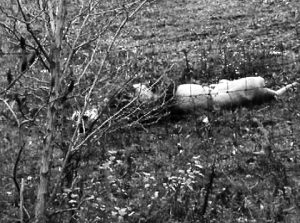Erin Potter, Staff Writer

There’s a wildly big story that hit the news last week; an Ohio man’s zoo of exotic animals escaped and ran free in the town of Zanesville. The owner, Terry Thompson, freed about 50 animals, including tigers, lions, wolves, monkeys and bears before committing suicide. The coroner found that Thompson had been bitten on the head by one of the big cats prior to his suicide.
This story raised questions on how exotic animals are sold and what laws are in place in regards to exotic pets. Many readers were outraged by the fact that the police decided to kill the freed animals rather than use tranquilizers. Many of the animals killed were endangered species, such as 18 Bengal tigers. Deaths also included two wolves, eight bears, seventeen lions, one baboon and three mountain lions. There were six animals that were not freed that were then sent to the Columbus zoo.
There is one auction house in Ohio that sells exotic pets legally, but it stopped selling big cats and bears a year ago. There are, however, auction houses in other states that continue to sell large exotic animals. One member of ExoticPetCo.com, Mac Stoutz, says, “It’s a free country and some people argue you should be able to own whatever you want.” This may be a valid argument, but those people may not take into account that having exotic animals may cost them their life. Seventy-five deaths have occurred in the past two decades due to private ownership of exotic animals. The exotic pet trade could also lead to the extinction of some species. Some animal rights organizations aren’t happy with the outcome of this incident, claiming that it was inhumane for the freed animals to be shot, rather than captured or tranquilized and subsequently sent to zoos around the country.
So what laws are in place to prevent the private ownership of exotic animals? Bornfreeusa.org states that there are eight states with no regulations on ownership, including Ohio. The law in Ohio states, “No person may bring into the state a non-domestic animal unless the possessor: obtains an entry permit; health certificate certifying the animal is free of infectious diseases; and a certificate of veterinary inspection. Persons in the state possessing non-domestic animals do not need to obtain a permit.” As for New York, it is unlawful to privately own a wild animal. According to the Humane Association of the United States, they have been pushing for legislation to better regulate the sale of exotic animals on a federal level.
Leave a Reply